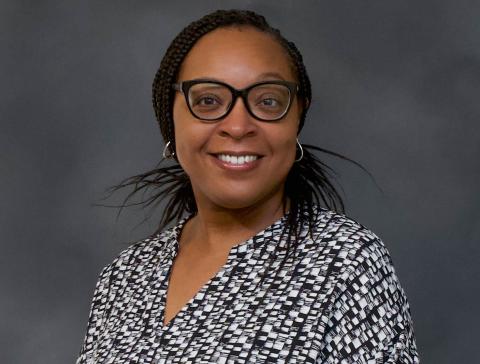
Advocating for a stronger mental health safety net
On the same day that hundreds of our Health Care for the Homeless community members rallied in Annapolis and lobbied for laws and policies to end homelessness, staff members and clients testified on bills that have implications for our neighbors without homes. Health Care for the Homeless Director of Community Relations Adam Schneider and Psychiatrist Ryan Stagg urged the Senate Finance Committee to support a pair of mental health bills that, if passed, could make a huge difference for vulnerable individuals statewide.
Joining a broad coalition of service providers and advocates, Schneider and Stagg urged the passage of SB 497, known as the “Keep the Door Open Act.” This bill would ensure that our state’s mental health care system is adequately funded, so that no one is denied mental health care or substance abuse treatment.
If we want to keep people from ending up on or returning to the street, Schneider told lawmakers, we need more publicly funded and readily accessible mental health resources. Our goal at Health Care for the Homeless is to help people attain stability and housing, and then “transition them into the community and on to other providers so that we can provide the best care for the most vulnerable,” he said. “Right now, that’s very, very difficult for us,” because there are so few public mental health care options for people once they’re housed and have an income.
Stagg argued that funding mental health providers isn’t just the right thing to do, it also makes financial sense: “If you take money and put it in the right places, you wind up spending a lot less on emergency room visits, a lot less on incarcerating people who don’t need to be incarcerated.”
Stagg also testified on another, related bill, SB 551, that would ensure acute mental health crisis resources statewide, starting with more walk-in centers and mobile response teams.
Drawing on his own experience at Health Care for the Homeless and in Baltimore hospital emergency rooms, Stagg told the committee that far too often, there is nowhere for someone enduring an acute mental health crisis to go. “Crises don’t stop just because there are no hospital beds available,” he explained. “We need walk-in centers. We need a plan in place for when we can’t get patients in the hospital.”
More Recent News
We are thrilled to welcome Nikia Woodard, our new Director of Human Resources! With more than two decades of experience in the HR field, Nikia previously held leadership roles with the Maryland Transit Administration, Unified Women’s Healthcare and a behavioral health residential treatment facility for youth in Baltimore. Most recently, she served as Director of Employee Experience & Organizational Development at Loyola University Maryland, implementing university-wide professional development programs and encouraging a culture of continuous learning. Read on to learn more about Nikia (and her favorite snack)…
After a year of serving as Practice Manager of West Baltimore, Alkema Jackson is moving into the new role of Director of Practice Operations, Community Sites! She joined Health Care for the Homeless in 2022 as the Client Access Project Coordinator, collaborating across departments to help more people connect to agency services, and in 2023, she received a Core Value Award for Hope. Read on to learn more about Alkema’s approach to this new position…
Meet Christana Greene, our new Director of Compliance! With more than five years in the compliance field—most recently as Senior Quality and Patient Safety Specialist at GBMC Healthcare—Chrissy brings frontline insight to the role. She began her career as a medical assistant, gaining firsthand experience in what it takes to keep care safe and operations running smoothly. In her new role, Chrissy is focused on building a compliance culture grounded in safety, integrity and accountability. Read on to learn more about Chrissy...
Baltimore gets dangerously cold, and too many of our neighbors are out there. Here are three simple things you can do to make a difference in someone’s life this winter.




